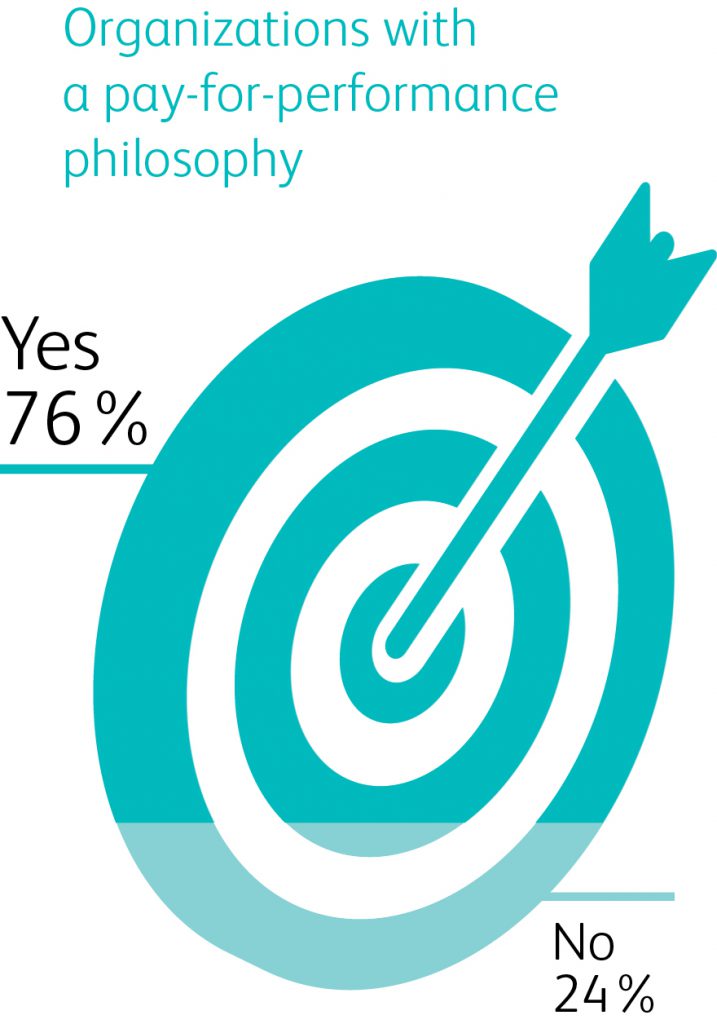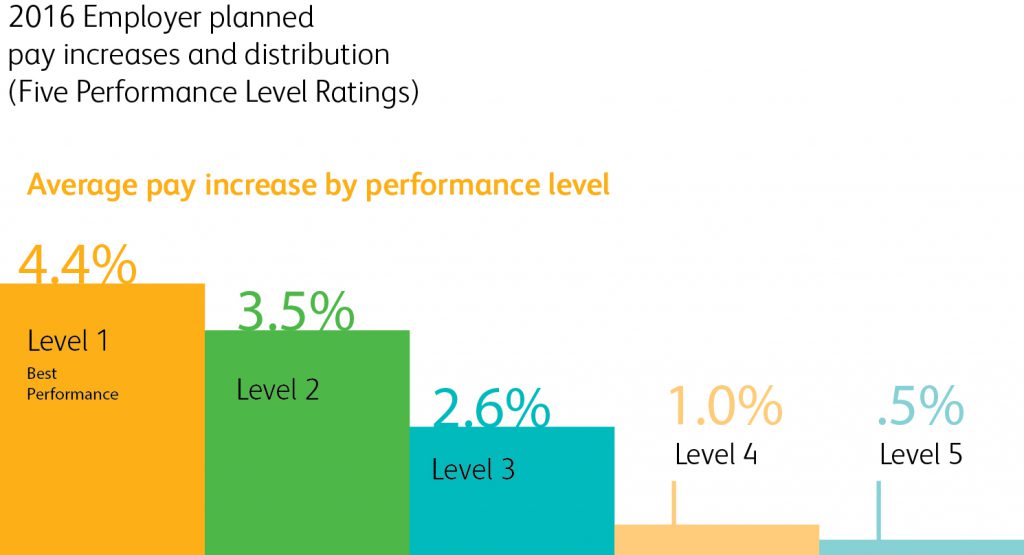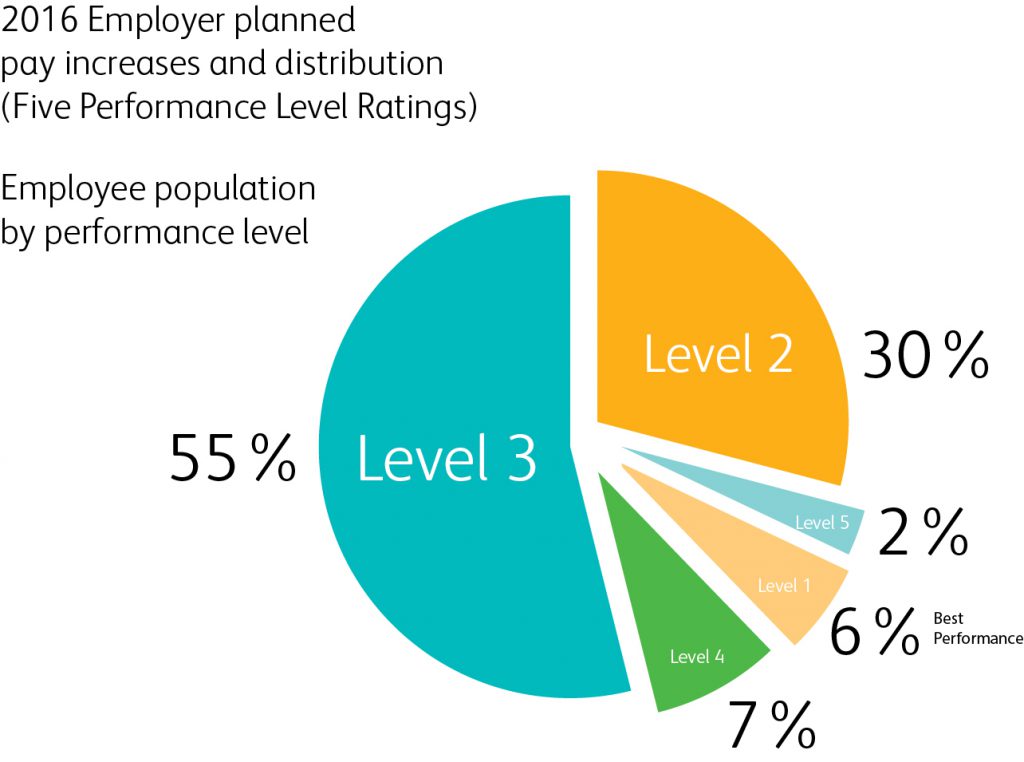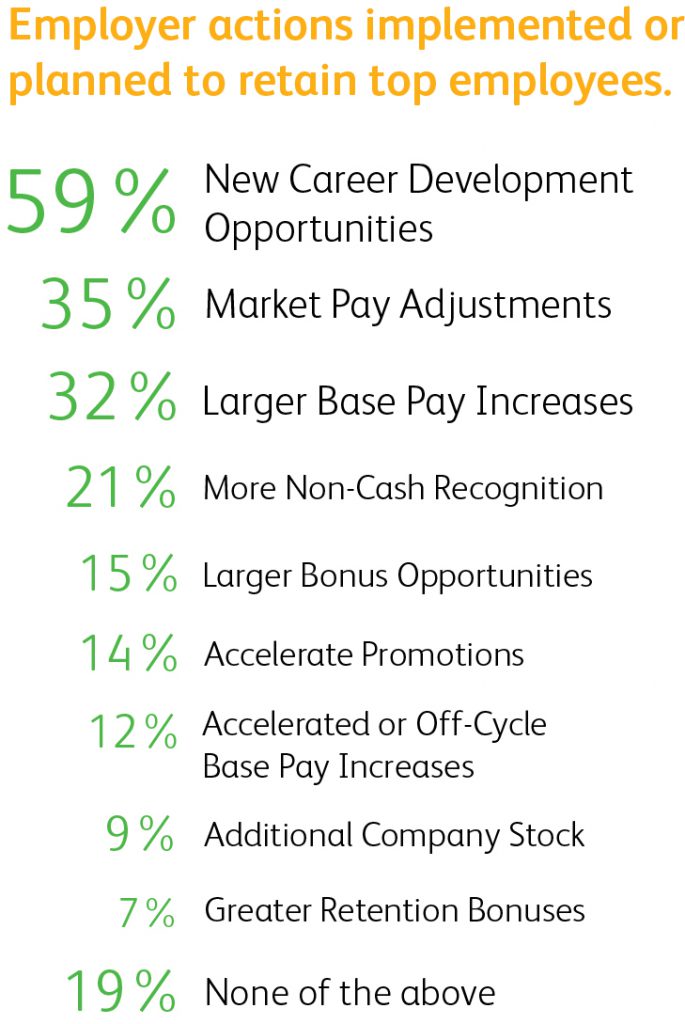Our Compensation Planning for 2016 Survey reveals that there’s a movement of money from raises to bonuses. While the U.S. economy seems to be moving forward in good health, employers are still cautious regarding the global economy, driven by China’s economic unpredictability.
Staying Flexible
Developing and implementing an effective compensation strategy can play a major role in achieving the right balance between controlling labor costs and inspiring the workforce. Performance bonuses are becoming the real raises in the workplace, allowing employers to reward top talent while controlling their fixed costs and maintaining flexibility for any challenging times in the future.
In addition to providing a reward for performance in good times, they can provide protection to the company in a down market. If we look back to the two most recent recessions, we can see a good example. In the 2002-2003 recession, companies began to lay off employees right away. In 2008-2009, companies delayed layoffs for a much longer period. In the time between those two recessions, companies increased the amount of payroll delivered through incentive plans. So, if a company delivers 20% of payroll through performance-based compensation (through incentives), it can cut payroll by 20% if it doesn’t pay a bonus. They good news is that most employees do not expect a bonus when the company is losing money. The better news is that the savings are achieved without a layoff.
In the case of the most recent recession, this did not provide the ultimate solution. But it did provide companies with the time needed to think strategically about how to address their compensation costs.
Other Survey Findings
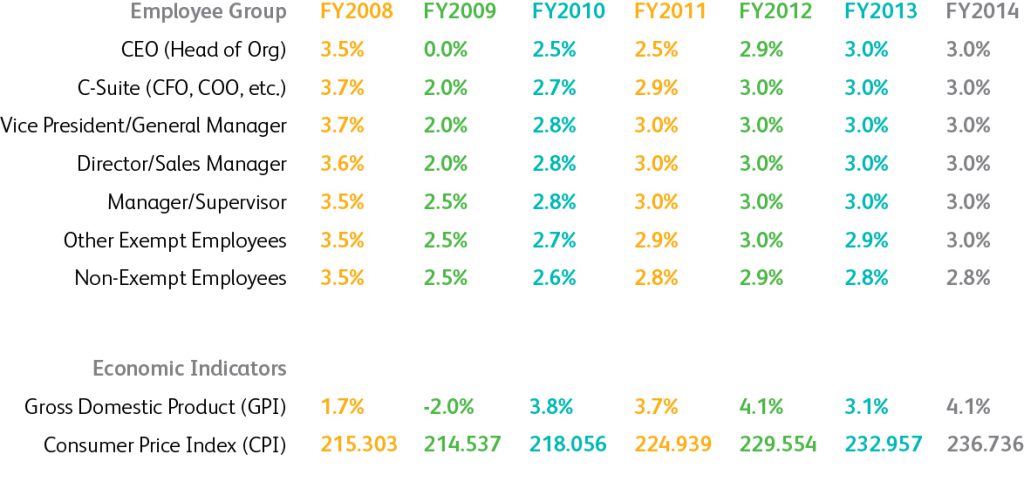
The modest acceleration of budget size stalled in 2013 at 3% and isn’t projected to change in 2016. In fact, median salary budgets haven’t broken the 3% level since 2008. Given the small but stable budgets available to retain a talented workforce, employers continue to carefully consider which employee engagement tools to invest in going forward. Though down 8% from last year, 45% of employers surveyed stated that retaining top talent remains one of their company’s top compensation priorities.
Seventy-six percent of respondents have a pay-for-performance philosophy. The majority (53%) use five performance levels. With a five performance level scale, the average pay increase for level one, the best performers, is 4.4%.
Fifty-nine percent said that they plan to create new career development opportunities to retain top performers, while 35% plan on making pay adjustments to meet market standards, and 32% are arranging larger base pay increases.
Beyond Base Pay
To develop a valuable strategy, companies should look beyond base salary to reward and retain their top performers. In many ways, variable pay has become the new merit pay. It is more efficient since it is not fixed pay and, in most cases, does not drive increases in benefits. It is also more closely tied to performance.
The survey report, “Compensation Planning for 2016,” is available to interested parties for $525 by calling 1-800-887-0509 or visiting http://www.bucksurveys.com. The survey was produced by our Knowledge Resources Group, which is responsible for national multi-practice legal analysis and publications, government relations, research, surveys, training, and knowledge management.
Survey Specifics
